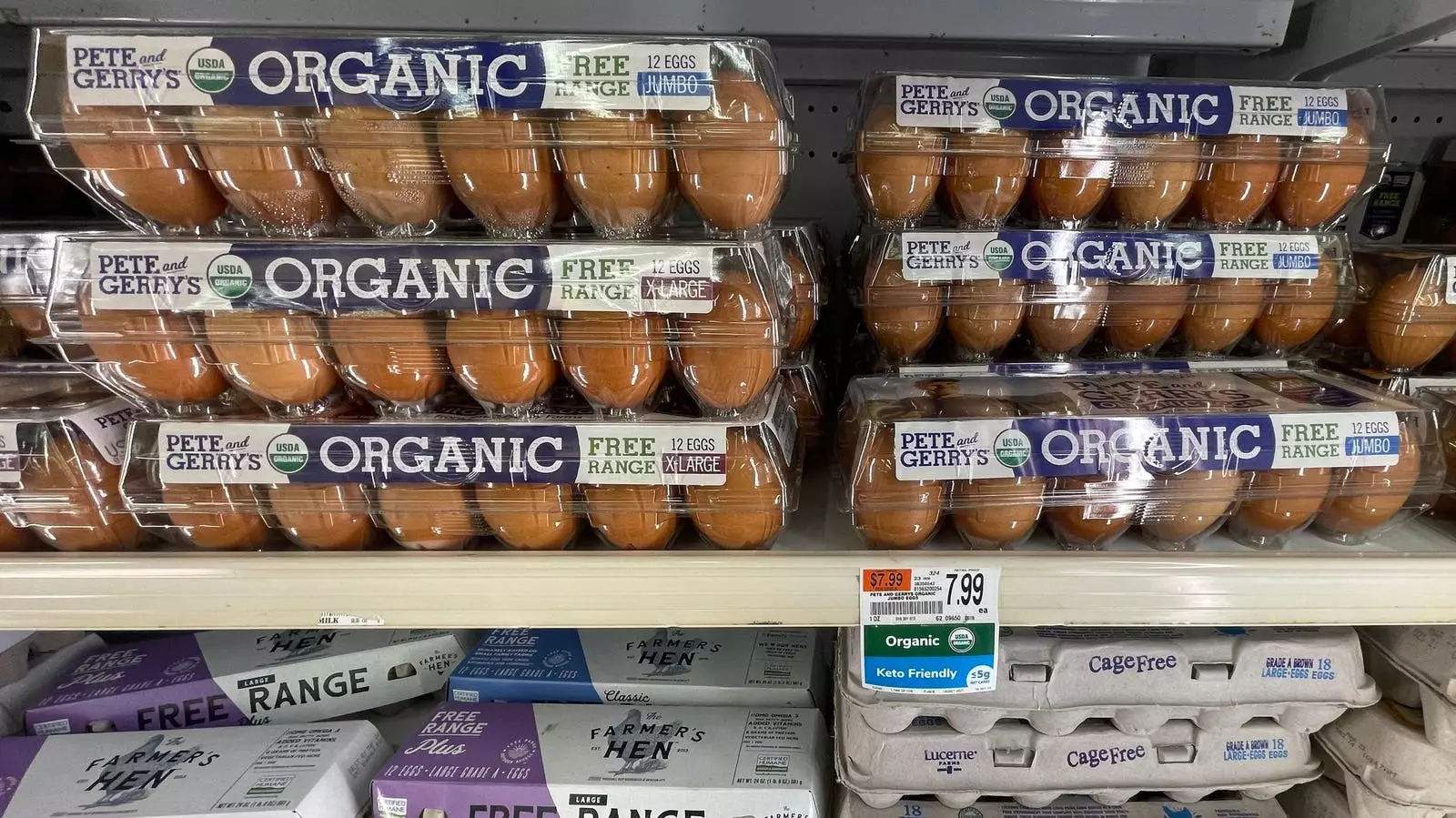Eggs have long occupied a dependable place in the American culinary landscape, serving various roles from breakfast staples to baking essentials. They were ubiquitous, often taken for granted as a reliable source of nutrition. However, the recent spate of events surrounding egg theft illuminates a striking transformation in our perception of everyday foods. With prices spiraling to unprecedented heights, the humble egg has morphed into a high-stakes target, heralding serious implications for consumers, farmers, and the food supply chain.
In the last few years, egg prices have surged dramatically, reaching an alarming $8 per carton. This trend isn’t merely a fleeting consequence of inflation or consumer demand; it is heavily tied to larger systemic issues within the agricultural sector. Avian influenza outbreaks and consequential supply chain disruptions have crippled the production of eggs, reducing availability while increasing demand. Such dynamics have turned something as commonplace as eggs into a luxury item, prompting consumers to reconsider how they view and purchase them.
Moreover, the recent egg heist in Pennsylvania, where thieves made off with an astonishing 100,000 organic eggs valued at $40,000, captures this unsettling reality. The company affected, Pete & Gerry’s Organic Eggs, responded by collaborating with local law enforcement to address the situation. But the implications extend far beyond the immediate loss—this incident underscores a larger trend of food theft, bringing to light the fragility of our food systems.
Food Theft: A Growing Phenomenon
The shocking theft of organic eggs is not an isolated incident. CargoNet’s analysis indicates that incidents of food theft have increased significantly, with consumable goods like eggs and vegetables frequently targeted. In 2024 alone, over 3,600 cargo theft incidents were reported in the United States and Canada, marking a 27% increase from the previous year. This trend raises questions about the future of food security and highlights vulnerabilities within food distribution networks.
The criminal targeting of high-value food items isn’t a new phenomenon. Historical incidents such as the Great Canadian Maple Syrup Heist and the Nutella Theft in Germany have illustrated the economic value assigned to food products. As food prices rise and supply chains face mounting pressures, the theft of foodstuffs—from maple syrup to eggs—reveals a troubling shift. Food, once a stable source of sustenance, is now becoming an economic asset worth stealing.
For consumers, the increasing valuation of eggs and other food staples raises troubling questions. In an environment where everyday items can be the targets of theft on such a grand scale, shoppers must grapple with a new reality: What comes next? Are rises in prices and the prevalence of theft harbingers of a deeper crisis in food security?
Food economics have shifted dramatically, moving from a stable marketplace to one where factors such as inflation, labor shortages, and environmental impacts play critical roles in shaping accessibility. The theft of eggs serves as a microcosm for this broader context; if something as routine as eggs is now regarded as a target for crime, it calls into question the very foundation of our food systems and the ability to ensure stability.
The Way Forward: Rethinking Food Protection
As the investigation into the Pennsylvania egg heist continues, it prompts industry stakeholders to reconsider how to protect food resources. Farmers and distributors may need to adopt enhanced security measures and rethink distribution strategies to address these vulnerabilities. The discussions around food security will likely intensify, pushing for innovative solutions grounded in resilience.
For consumers, the higher prices that come with these troubling trends may require adjustments in purchasing habits and meal planning. The reality that basic food items are now targets for thieves indicates not only economic shifts but places new emphasis on transparency and sustainability within the food supply chain.
The heist of 100,000 organic eggs in Pennsylvania serves as a stark reminder of how a simple morning staple has escalated in value and vulnerability. What was once an integral part of daily life is becoming increasingly precarious in a world beset by challenges related to supply, pricing, and security. As we reexamine our food systems in light of these incidents, it becomes imperative to foster greater awareness of the fragility underlying our food supplies. Consumers and producers alike must confront these realities, striving for a re-envisioned approach to food security that preserves the integrity and availability of essential resources such as eggs. The fragile state of our food supply calls for vigilance, innovation, and cooperation across all sectors involved in food production and distribution.

